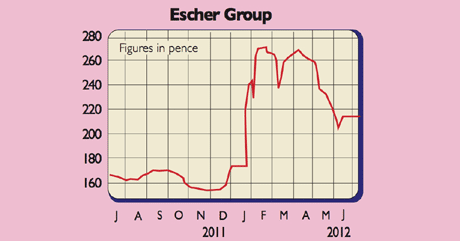
Postal operators are busy upgrading their dilapidated systems to streamline costs and add new functionality. Escher’s flagship Riposte point of sale application allows Post Office customers to automatically process utility bills, withdraw cash and make tax/benefit payments, alongside buying stamps, letters and other merchandise.
The clever software is used in both over-the-counter and self-service terminals, and licensed in more than 30 countries by the likes of Austrian Post, Deutsche Post, Norway’s Posten and SAPO in South Africa.
In February, Escher even won a deal to supply the US postal service. The agreement has a 54-month initial period plus renewal options, and is expected to generate revenues of $50m, or perhaps more. Moreover, the firm has backed this up by signing up Pakistan Post in April and Swazi Post in June.
Swazi Post joins a growing roster of clients in Africa, notably Angola Post, Botswana Post, Cape Verde Post, Mauritius Post, NamPost and ZimPost, who have chosen Escher as their preferred supplier of automation technology.
Escher Group (AIM: ESCH)
Even in today’s economic environment, there’s plenty more upside to boot: 195 national operators worldwide own 650,000 post offices that employ around four million people and handle $327bn of business. To date, only about 30% of this market has been outsourced to specialists like Escher. And it’s a market where long maintenance contracts and repeat business provide excellent earnings visibility.
Panmure Gordon believes EBITDA and earnings per share in 2012 will reach $5.9m and 28.4 cents respectively on turnover of $18.9m. However, based on a rich pipeline of new opportunities, it expects sales and EBITDA to soar to $27.9m (up 47%) and $11.9m (up 100%) in 2013.
I value the business on a price/earnings (p/e) of 16 times, which delivers an intrinsic worth of 280p a share. Escher depends on one main product and faces foreign-currency fluctuations and the gradual decline in postal services. It is also a small player in a very large corporate software market, so it could be hit by new technological advances. But with a defensive position in a niche market, it has already demonstrated that it can grow even in the toughest of climates.